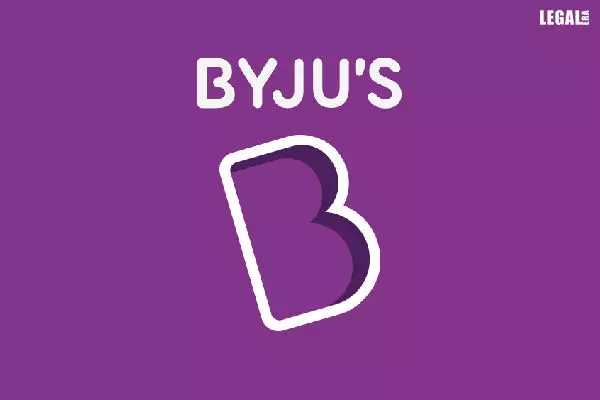- Home
- News
- Articles+
- Aerospace
- AI
- Agriculture
- Alternate Dispute Resolution
- Arbitration & Mediation
- Banking and Finance
- Bankruptcy
- Book Review
- Bribery & Corruption
- Commercial Litigation
- Competition Law
- Conference Reports
- Consumer Products
- Contract
- Corporate Governance
- Corporate Law
- Covid-19
- Cryptocurrency
- Cybersecurity
- Data Protection
- Defence
- Digital Economy
- E-commerce
- Employment Law
- Energy and Natural Resources
- Entertainment and Sports Law
- Environmental Law
- ESG
- FDI
- Food and Beverage
- Gaming
- Health Care
- IBC Diaries
- In Focus
- Inclusion & Diversity
- Insurance Law
- Intellectual Property
- International Law
- IP & Tech Era
- Know the Law
- Labour Laws
- Law & Policy and Regulation
- Litigation
- Litigation Funding
- Manufacturing
- Mergers & Acquisitions
- NFTs
- Privacy
- Private Equity
- Project Finance
- Real Estate
- Risk and Compliance
- Student Corner
- Take On Board
- Tax
- Technology Media and Telecom
- Tributes
- Viewpoint
- Zoom In
- Law Firms
- In-House
- Rankings
- E-Magazine
- Legal Era TV
- Events
- News
- Articles
- Aerospace
- AI
- Agriculture
- Alternate Dispute Resolution
- Arbitration & Mediation
- Banking and Finance
- Bankruptcy
- Book Review
- Bribery & Corruption
- Commercial Litigation
- Competition Law
- Conference Reports
- Consumer Products
- Contract
- Corporate Governance
- Corporate Law
- Covid-19
- Cryptocurrency
- Cybersecurity
- Data Protection
- Defence
- Digital Economy
- E-commerce
- Employment Law
- Energy and Natural Resources
- Entertainment and Sports Law
- Environmental Law
- ESG
- FDI
- Food and Beverage
- Gaming
- Health Care
- IBC Diaries
- In Focus
- Inclusion & Diversity
- Insurance Law
- Intellectual Property
- International Law
- IP & Tech Era
- Know the Law
- Labour Laws
- Law & Policy and Regulation
- Litigation
- Litigation Funding
- Manufacturing
- Mergers & Acquisitions
- NFTs
- Privacy
- Private Equity
- Project Finance
- Real Estate
- Risk and Compliance
- Student Corner
- Take On Board
- Tax
- Technology Media and Telecom
- Tributes
- Viewpoint
- Zoom In
- Law Firms
- In-House
- Rankings
- E-Magazine
- Legal Era TV
- Events
Supreme Court Reserves Verdict On Glas Trust’s Plea Against Byju’s

Supreme Court Reserves Verdict On Glas Trust’s Plea Against Byju’s
The NCLAT had set aside insolvency proceedings, approving the ed-tech firm’s Rs.158.9 crore dues settlement with the BCCI
The Supreme Court has directed the insolvency resolution professional (IRP) to maintain the status quo and not to hold any meeting of the committee of creditors (CoC) on insolvency proceedings against Byju's (corporate debtor).
The bench comprising Chief Justice DY Chandrachud, Justice JB Pardiwala and Justice Manoj Misra reserved its verdict on the US firm Glas Trust Company LLC plea against the National Company Law Appellate Tribunal (NCLAT).
The tribunal had set aside the proceedings under the Insolvency and Bankruptcy Code (IBC) against Byju's, approving its Rs.158.9 crore dues settlement with the Board of Control for Cricket in India (BCCI).
The interim direction was passed after senior advocate Kapil Sibal, appearing for US-based creditor Glas Trust alleged that the company having over 99 percent stake in the CoC, was ousted by the IRP.
The IRP is appointed under the IBC by the National Company Law Tribunal (NCLT) to temporarily manage finances of the ailing company. He conducts the Corporate Insolvency Resolution Process (CIRP) and assesses the firm's operations.
Appearing for the BCCI, Solicitor General Tushar Mehta submitted there was nothing wrong with the cricket body's settlement claim. The only two conditions were that the money should be untainted and not come from Byju’s assets.
Senior advocate Shyam Divan, who also represented the US firm, said the NCLAT would not have allowed such a settlement.
Earlier, the apex court had questioned the verdict of the NCLAT setting aside the insolvency proceedings against Byju's and approving its settlement of dues with the BCCI.
Observing that the appellate tribunal did not apply its mind while closing the proceedings against the ed-tech firm, the bench stated sending back the matter for fresh adjudication.
In August, the NCLAT granted relief to the embattled ed-tech firm by setting aside the insolvency proceedings after approving the Rs.158.9 crore dues settlement with the BCCI.
The verdict was a huge relief for Byju's, putting its founder Byju Raveendran back in control. However, the relief was short-lived.
The top court termed the tribunal’s verdict ‘unconscionable’, staying its operation while issuing notices to Byju's and others on the appeal of Glas Trust. (The company is in debt of Rs.15,000 crore).
The CJI questioned, “When the quantum of the debt is so large, can one creditor walk away saying one promoter is ready to pay. Why pick up BCCI and settle with them only from your personal assets.”
The BCCI was directed to keep the amount of Rs.158.9 crore, received as part of the settlement, in a separate bank account.
In 2019, Byju's entered a ‘Team Sponsor Agreement’ with the BCCI. Under it, the ed-tech firm had exclusive rights to display its brand on the Indian cricket team's kit and other benefits.
Byju's had to pay a sponsorship fee and the company met its obligations till mid-2022 but defaulted on subsequent payments of Rs.158.9 crore.
After insolvency proceedings were initiated, Byju's settled the matter with the BCCI.
In July, the Bengaluru bench of the National Company Law Tribunal (NCLT) admitted Byju's parent company Think and Learn to insolvency, on BCCI’s plea over payment default.
While suspending the board of the ed-tech firm, the NCLT appointed an IRP to run the company’s operations, suspended the board of directors, and brought it under moratorium by freezing its assets.
The US-based lenders suspected the settlement amount was diverted from the credit they had extended to Byju's.


